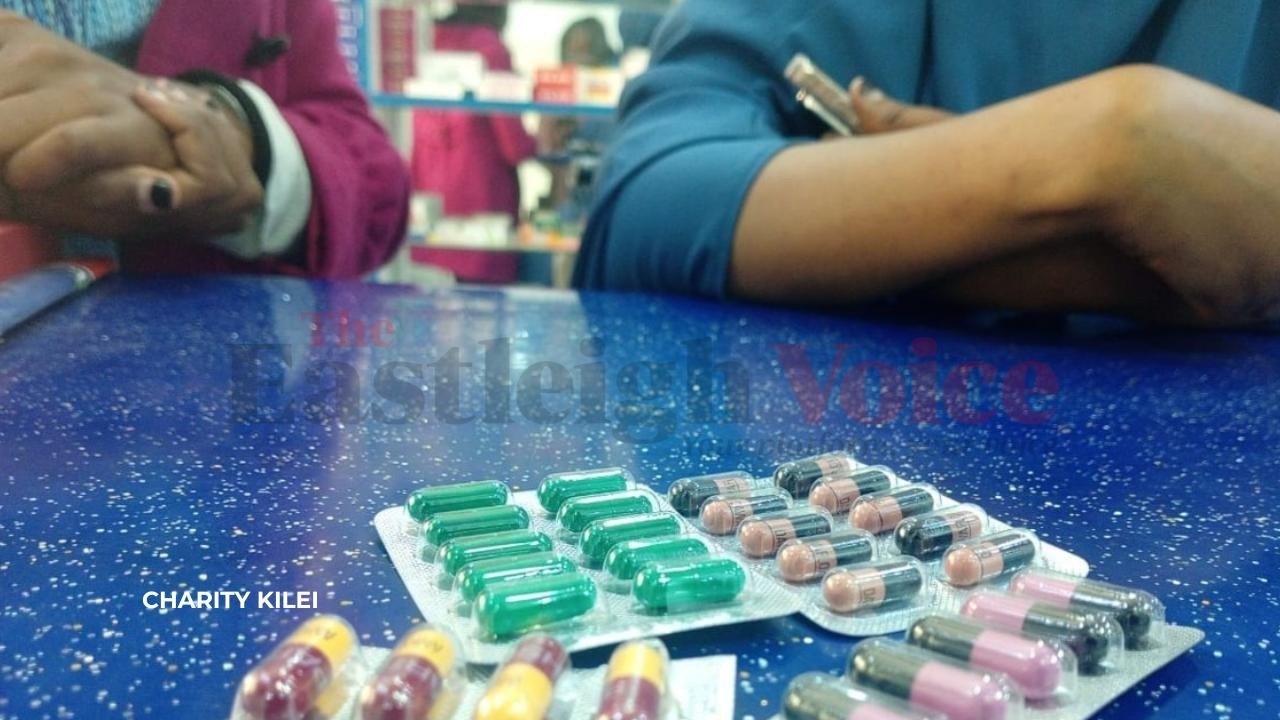The hidden danger in crushed pills: Why altering children’s medicine can be risky

Health experts warn that crushing tablets or opening capsules to make medicine easier for children to swallow can alter dosage, reduce effectiveness, and even cause harm.
Many mothers face a common dilemma when their children outgrow syrup-based medicines, usually around age seven. To make tablets easier to swallow, some parents tear open capsules or crush tablets, mixing the powder with water — a practice often believed to make medicine work faster.
For years, that’s what Jackline Were, a mother of three, has done. Her children dislike swallowing tablets or capsules but are too old for syrup. In emergencies, when only adult medication is available, she says this method feels like the only choice.
"Like many others, I believe medicine can be shared — especially common ones like antibiotics or malaria tablets," she admits. "If I run out, I'll get more doses later. I always have leftover medicine at home from previous illnesses, and when a child suddenly gets sick, my first thought is to help them feel better before I can reach a hospital."
Intended for adults
Because some doses are intended for adults, she often breaks the medicine in half and dissolves it in water before giving it to a child, assuming it becomes child-friendly based on age.
"If an adult takes two tablets, I usually give a child one," she explains.
However, health experts warn that this widely practised shortcut can be dangerous. Crushing tablets or opening capsules can change how the drug works, reduce its effectiveness, or cause harmful side effects. It can also irritate the throat or stomach and lead to incorrect dosing — especially in children.
The ability to swallow tablets varies among children. It is a learned skill, not strictly tied to age. Some children as young as four can swallow small tablets, but most comfortably do so between six and eleven, with many mastering it by age ten.
Weakening potency
While many parents improvise to ensure their children take medicine, doctors are raising concerns over this growing trend. What may seem like a harmless adjustment can actually interfere with how the drug functions, weaken its potency, or even cause infections and internal injuries.
Dr Esther Mwaura, a medical practitioner based in Eastleigh, says she encounters such cases almost daily, often linked to misinformation and a culture of self-medication.
"Many people believe that the capsule shell is made of plastic and could cause cancer, so they tear it open before taking it," Mwaura explains. "Unfortunately, that's not true — capsule shells are made from soft, soluble materials like gelatin or plant-based compounds that dissolve easily in the stomach. They are specifically designed to help people swallow medicine comfortably and to release the drug safely once inside the body."
Serious consequences
She cautions that altering capsules or tablets can have serious consequences.
"When you open a capsule and pour the powder into water, you interfere with the dosage," she says. "Some of the medicine is lost or left behind, meaning the amount the body receives is less than prescribed — and that reduces the drug's effectiveness."
Other Topics To Read
Beyond dosage problems, there are also physical health risks.
"Swallowing the exposed powder can corrode the throat and the oesophagus, leading to irritation or infection," Mwaura adds. "If this habit continues for a long time, it can even cause small wounds or bleeding in the digestive tract."
Capsule coatings
She explains that capsule coatings serve crucial purposes — some protect the stomach from harsh drugs, while others ensure the medicine is absorbed only in the intestines.
"When you destroy that protective layer, the medication might be released too early or too late, making it either ineffective or harmful," she notes.
Mwaura also highlights another risky behaviour: sharing medication within families, especially giving adult prescriptions to children.
Dangerous approach
"This is something we encounter often," she says. "People assume that because the symptoms look similar, the same medicine will work for everyone. Some even use leftover drugs from a previous illness, believing it will save time or money."
But this approach, she warns, can be dangerous.
"A prescription is tailored to a specific patient's age, weight, and health condition," she explains. "Giving adult medication to a child can easily result in an overdose, while splitting tablets without proper guidance can lead to underdosing — both of which are dangerous. In some cases, children may also have allergies to ingredients in adult formulations, which can trigger severe reactions."
She urges parents to consult healthcare professionals before giving any medicine to a child.
"If a child struggles to swallow tablets, there are safe alternatives," she advises. "Pharmacies and hospitals can provide pediatric-friendly options such as syrups, dispersible tablets, or soluble powders that are designed to be safe and effective for children."
Public awareness
According to Mwaura, public awareness is key to ending these long-held habits.
"Many of these practices have been passed down through generations — mothers learning from their mothers," she says. "But medicine has evolved. We now know much more about how drugs interact with the body. It's important to let science, not myths, guide how we take care of our children."
She adds that even well-meaning shortcuts can do more harm than good.
"Parents always want the best for their children," she says. "But when it comes to medicine, guessing or improvising is not safe. Always ask a doctor or pharmacist — that simple step could save a life."
Serious outcomes
A review published in Prescrire International reinforces this caution. It found that altering solid oral medications — by crushing tablets or opening capsules — can drastically change how they behave in the body, often with serious outcomes.
For example, slow-release tablets may deliver their entire dose at once if crushed, leading to overdose or toxicity. Likewise, enteric-coated drugs designed to dissolve in the intestines lose their protective layer when tampered with, making them ineffective or irritating to the stomach.
The review also noted practical risks: some of the medicine can be lost when mixed with food or water, causing underdosing. Exposure to powdered drugs can also pose hazards to caregivers and children. The practice, the study concludes, is considered “off-label” and carries both safety and legal implications.
The takeaway is clear: while altering medicine may seem convenient, it can easily lead to too much or too little of the drug entering the system — increasing the risk of treatment failure, toxicity, or harm.
Experts stress that any modification of tablets or capsules should only be done under professional supervision, and whenever possible, parents should opt for safe, child-friendly formulations.
Top Stories Today












































